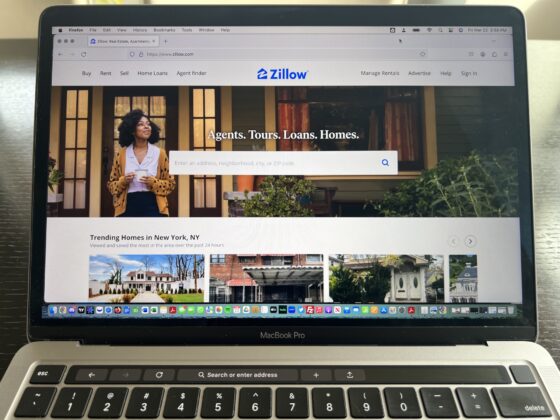Table of Contents Show
In particular financial circumstances, New York City homeowners may owe more on their mortgage than their current property value. In such cases, a short sale can be a viable option to avoid foreclosure and mitigate financial distress. We will delve deeper into what a short sale entails, how it works, and the necessary steps to navigate the short sale process for your home in NYC.
What is a Short Sale?What is a Short Sale?
A short sale is a real estate transaction where the lender agrees to accept less than the total amount owed on a mortgage when selling the property. It occurs when the homeowner is experiencing financial hardship, such as job loss, medical expenses, or other extenuating circumstances. With the assistance of a real estate agent and potentially a real estate attorney, the homeowner initiates the short sale process by submitting a hardship package to the lender, demonstrating their inability to continue making mortgage payments.
How long does a short sale take?How long does a short sale take?
Short sales usually take much longer than regular re-sale transactions. The average time between missing your first payment and foreclosure is four to six months. If the owner tries to sell after missing their first payment, that’s how long it can be expected to take. It takes so long that banks won’t sign off on a short sale until they have a signed contract from a buyer. Potential buyers will be cautious about signing a contract of sale when they don’t even know if the bank will approve the sale. This catch-22 is usually resolved when the buyer agrees to sign a contract with a contingency that states the sale must be approved by a specific date.
Eligibility and Preparing for a Short SaleEligibility and Preparing for a Short Sale
To begin the short sale process, homeowners must demonstrate their financial hardship to the lender. This involves preparing a comprehensive hardship package that includes financial statements, bank statements, pay stubs, tax returns, and a detailed hardship letter explaining the circumstances that have led to the inability to meet mortgage obligations. Seeking guidance from a real estate attorney or a certified housing counselor specializing in short sales can ensure the documentation is complete and presented effectively to the lender.
Duration of a Short SaleDuration of a Short Sale
The timeline for completing a short sale can vary depending on various factors. The process can take anywhere from a few months to several months or even longer. The timeframe is influenced by factors such as the transaction’s complexity, the lender’s responsiveness, the co-op board’s involvement (if applicable), market conditions, and the cooperation of all parties involved. It’s essential to remain patient and work closely with your real estate agent and attorney to navigate the process effectively and ensure a timely resolution.
Engage a Real Estate Agent Specializing in Short SalesEngage a Real Estate Agent Specializing in Short Sales
Working with a qualified real estate agent experienced in handling short sales is crucial. They possess in-depth knowledge of the NYC market and can guide homeowners from pricing the property to negotiating with the lender. An experienced agent will help determine an appropriate listing price by considering current market conditions and recent comparable sales. Their expertise in marketing strategies, such as professional photography, virtual tours, and targeted online and offline advertising, will help generate interest and attract potential buyers.
Negotiating with the LenderNegotiating with the Lender
When a potential buyer submits an offer, the real estate agent, in collaboration with the homeowner and potentially a real estate attorney, will negotiate with the lender to obtain approval for the short sale. This process requires providing the lender with a comprehensive offer package that includes the buyer’s offer, proof of funds or financing, and a compelling case for the short sale. The negotiation can involve multiple discussions and may require patience and persistence.
Closing the Short SaleClosing the Short Sale
Upon receiving lender approval, the closing process can proceed. The real estate attorney specializing in short sales will oversee the transaction, ensuring that all legal and contractual requirements are met. They will handle the necessary paperwork, coordinate with the lender, buyer, and other parties involved, and facilitate the title transfer. Having an attorney well-versed in the intricacies of short sales is crucial to protect the homeowner’s interests and ensure a smooth closing.
Potential Implications and ConsiderationsPotential Implications and Considerations
While a short sale can relieve an unsustainable mortgage, it’s essential to be aware of potential implications. A short sale can negatively impact the homeowner’s credit score, although typically to a lesser extent than a foreclosure. It’s advisable to consult with a credit counselor or financial advisor to understand the potential credit implications specific to the homeowner’s situation.
Additionally, homeowners should know they may be responsible for paying taxes on any forgiven debt. The Mortgage Forgiveness Debt Relief Act may provide some relief from tax liability, but it’s crucial to consult with a tax professional to understand the specific implications and potential exemptions.
Furthermore, the lender may reserve the right to pursue a deficiency judgment, which means they can seek repayment of the remaining balance after the short sale. Consulting with a real estate attorney can help homeowners understand their rights and potential legal ramifications, providing valuable guidance throughout the process.
Considerations for a Co-op’s Discretion in Accepting a Low Price in NYCConsiderations for a Co-op’s Discretion in Accepting a Low Price in NYC
When dealing with a short sale for a co-op property in NYC, it’s essential to know that co-op boards have significant discretion in accepting or rejecting offers, especially if the offer price is considerably below market value. Key considerations include:
- Co-op Board Approval: Co-op properties require board approval, and boards assess the buyer’s financials and suitability. Low offers that could impact the value or financial stability of the building may be rejected.
- Market Value: Co-op boards prioritize maintaining property values. A significantly low offer may raise concerns about the impact on value and shareholders’ investments.
- Co-op Financial Health: Boards evaluate the financial health of the cooperative. Accepting a low offer could strain the co-op’s finances and affect operating expenses and maintenance.
- Impact on Shareholders: Boards must act in the best interests of shareholders. A low offer may affect existing shareholders, property value, and future refinancing or sales.
- Engaging with the Board: Open communication and a compelling case for financial hardship can help the board understand the necessity of a lower offer.
- Seek Professional Guidance: Work with a real estate attorney experienced in co-op transactions to navigate the board approval process and advocate for your best interests.
In conclusion, when pursuing a short sale for a co-op property, be aware of the co-op board’s discretion. Communicate effectively, provide a strong case, and seek professional guidance to navigate the process successfully.
Buyer bewareBuyer beware
If you buy a short-sale property, prepare for a long waiting game. Banks are notorious for taking several months to approve short sales. A deadline in the contract may spur them into action, but it’s no guarantee. The bank may even prefer foreclosure if they can get more money. If you’re seeking financing for the purchase, ensure your lender is okay with a short-sale property. You may increase your offering price to get the bank to agree to the sale. The seller has no absolute authority over the sales price. Only the bank does, and they may make a counteroffer. You’ll also buy the property in an as-is condition, so you must consider any possible repairs.
Bottom LineBottom Line
Navigating a short sale in NYC requires careful preparation, the expertise of professionals, and effective communication with the lender. Understanding the process, engaging a qualified real estate agent and real estate attorney, and presenting a compelling case for the short sale is essential to completing the transaction. While a short sale may have credit and tax implications, homeowners can mitigate financial distress, avoid foreclosure, and pursue a fresh start with proper guidance and proactive measures.







